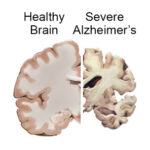Minerals are essential nutrients that our body requires in small amounts to function correctly. A deficiency in these crucial elements can lead to various health complications, affecting metabolic processes, immune function, and overall well-being. This article explores the causes, symptoms, types, and treatment options for mineral deficiency.

What Is Mineral Deficiency?
Mineral deficiency occurs when the body lacks sufficient amounts of essential minerals necessary for maintaining health. These minerals include macrominerals such as calcium, magnesium, and potassium, as well as trace minerals like iron, zinc, and iodine.
Common Causes of Mineral Deficiency
Several factors can contribute to mineral deficiency, including:
- Poor Diet: Consuming processed foods with low nutrient content.
- Malabsorption Disorders: Conditions like celiac disease, Crohn’s disease, and irritable bowel syndrome (IBS) impair nutrient absorption.
- Chronic Illnesses: Conditions such as kidney disease, diabetes, and gastrointestinal disorders can affect mineral levels.
- Medications: Certain medications interfere with mineral absorption or increase excretion.
- Inadequate Sun Exposure: Essential for vitamin D synthesis, which aids in calcium absorption.
- Excessive Alcohol Consumption: Reduces the body’s ability to absorb and retain minerals.
- Pregnancy and Lactation: Increased demand for nutrients during these phases.
Symptoms of Mineral Deficiency
The symptoms of mineral deficiency vary depending on the specific mineral lacking in the body. Some general signs include:
- Fatigue and Weakness
- Brittle Nails and Hair Loss
- Muscle Cramps and Spasms
- Impaired Immune Function
- Cognitive Issues like Brain Fog and Memory Loss
- Bone Weakness and Fragility
- Digestive Problems
Types of Mineral Deficiencies
1. Calcium Deficiency (Hypocalcemia)
- Symptoms: Muscle spasms, brittle bones, numbness, and osteoporosis.
- Causes: Low dairy intake, vitamin D deficiency, and hormonal imbalances.
- Sources: Dairy products, leafy greens, almonds, and fortified foods.
2. Iron Deficiency (Anemia)
- Symptoms: Fatigue, pale skin, dizziness, and shortness of breath.
- Causes: Blood loss, poor diet, pregnancy, and gastrointestinal disorders.
- Sources: Red meat, spinach, lentils, and fortified cereals.
3. Magnesium Deficiency
- Symptoms: Muscle cramps, irregular heartbeat, mood swings, and weakness.
- Causes: High alcohol intake, diabetes, and chronic diarrhea.
- Sources: Nuts, seeds, whole grains, and dark chocolate.
4. Potassium Deficiency (Hypokalemia)
- Symptoms: Muscle weakness, fatigue, irregular heartbeat, and high blood pressure.
- Causes: Dehydration, excessive sweating, and kidney disorders.
- Sources: Bananas, avocados, potatoes, and leafy greens.
5. Zinc Deficiency
- Symptoms: Hair loss, weakened immunity, delayed wound healing, and taste changes.
- Causes: Poor diet, alcoholism, and chronic illnesses.
- Sources: Shellfish, red meat, legumes, and dairy.
6. Iodine Deficiency
- Symptoms: Thyroid disorders, weight gain, dry skin, and goiter.
- Causes: Low seafood intake, soil depletion, and pregnancy.
- Sources: Seaweed, fish, dairy, and iodized salt.
7. Sodium Deficiency (Hyponatremia)
- Symptoms: Nausea, confusion, seizures, and muscle cramps.
- Causes: Excessive sweating, kidney disease, and diuretics.
- Sources: Table salt, processed foods, and seafood.
Diagnosing Mineral Deficiencies
Doctors diagnose mineral deficiencies through:
- Blood Tests: To measure mineral levels.
- Urine Tests: To check for excess mineral excretion.
- Physical Examination: Identifying visible symptoms.
- Dietary Assessment: Reviewing food intake history.
Treatment and Prevention
1. Dietary Adjustments
A well-balanced diet rich in whole foods is the best way to prevent deficiencies. Include:
- Dairy and Leafy Greens for calcium.
- Red Meat and Beans for iron.
- Bananas and Avocados for potassium.
- Seafood and Nuts for iodine and zinc.
2. Supplementation
If dietary intake is insufficient, doctors may recommend supplements such as:
- Calcium and Vitamin D for bone health.
- Iron Supplements for anemia.
- Magnesium Tablets for muscle and nerve function.
3. Addressing Underlying Conditions
Treating diseases that impair nutrient absorption, such as Crohn’s disease, is crucial for managing deficiencies.
4. Lifestyle Modifications
- Reduce alcohol consumption.
- Limit processed foods.
- Stay hydrated and maintain a balanced diet.
Mineral deficiencies can have serious health consequences, but they are largely preventable with a well-balanced diet and proper supplementation when needed. Early diagnosis and treatment are essential to avoid long-term complications. Prioritizing nutrition and lifestyle changes can help maintain optimal mineral levels and overall health.

